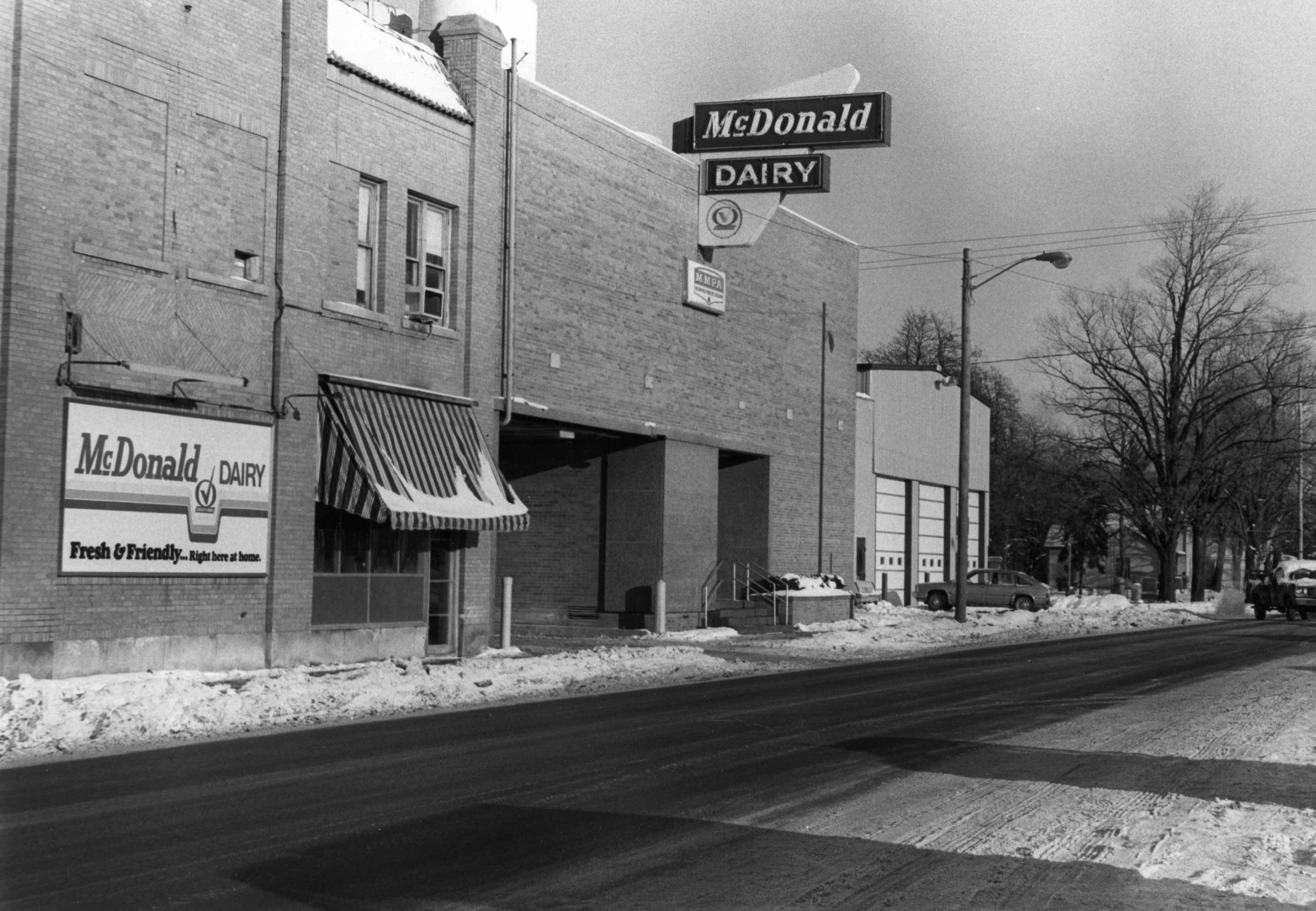Several leaders, past and present, were asked to offer three characteristics that describe MMPA and here’s what they said:
“Integrity, stability and honesty.”- Deanna Stamp, retired board director.
“Trust, transparency, dedication.” – Ken Nobis, board president.
“Progressive, financially sound and member oriented.”- Velmar Green, retired board treasurer.
“Family, Honesty, Integrity.” Gary Trimner, retired director of member services.
These powerful words fit the description of the heart and soul of the cooperative that has seen the ups and downs of a volatile industry though one hundred years. Milk prices through the years would make the most thrilling roller coaster look like child’s play and yet Michigan dairy producers have faced unpredictability with sheer determination.
In 1916, it was no secret the dairy farmers of Michigan were in great need of milk pricing reform. Deciding to take matters into their own hands, they forged a milk cooperative that would make the production of milk in Michigan a more satisfactory occupation. That fateful Tuesday in May of 1916, the forward thinking, determined group of dairymen made it their business to bargain for their own milk price and MMPA was born.
Past president Jack Barnes wrote, “At that meeting, (in 1916) the dairy farmers chose from their members, a board of directors and ever since that first meeting, the Association has been owned and operated by its farmer-members. MMPA has been successful because it is owned by dairy farmers, services dairy farmers and is controlled by the dairy farmers it serves.”
With a bargaining association in place, dairy producers were set for better days ahead as they moved from being price takers to price makers. Leadership was a key role in this monumental task and as they moved through the years, the member leadership would provide the one constant needed to face the unforeseen struggles of the Great Depression and beyond. The dairy industry would survive the depressed decade of the 30s and move into the war torn years of the 40s, 50s and 60s.
Former board member and treasurer, Velmar Green was initiated into the cooperative in the late 50s and early 60s when farmers were desperately seeking better milk prices. He commented, “The prices were extremely low and the farmers thought that striking would produce a better price. Fortunately, we had probably the greatest leader in Glenn Lake at that time and as president he was very articulate with the members and convinced them that Michigan Milk was fair to everyone.”
Fluid milk consumption began to drop in the early 70s and that proved to trickle down to MMPA with consequences that would last a decade. Twin Pines Dairy and United Dairy merged to make United-Twin Pines Dairy in the early 70s and were purchasing several million dollars’ worth of milk from MMPA. When they couldn’t pay the bill, MMPA took action. John Dilland, the newly hired controller, commented about the havoc that existed as he moved into his new position, “The management commitment made at that time was to continue the pay back the capital retain investment by members on the same ten-year cycle but without a fixed obligation. Members, of course, had to approve this change in capital structure at an annual meeting, which they did even after being told that some of their certificates of indebtedness would be applied against their share of the allocated loss related to United-Twins Pines Dairy.” Dilland continued, “While no one liked making these changes, MMPA members stepped up and did what was necessary to save their cooperative. I have never forgotten that commitment and the loyalty members showed to their cooperative.”
McDonald Cooperative Dairy Company was another casualty of tanking fluid milk sales. MMPA took on the McDonald Cooperative’s 800 member’s milk and struggles ensued. When Walt Wosje took over as General Manager he noted that while the membership was well organized, the business organization needed some attention and McDonald Dairy was at the top of the list.
As the new General Manager, Wosje wanted to gain the trust of the membership and began riding along with milk haulers to get to know the producers who entrusted him to manage their milk co-op. Green commented, “There was no one like Walt, he could talk to the farmers in their language.”
Wosje moved MMPA out of the milk bottling business and into the cheese making business by convincing Country Fresh to buy McDonald Dairy and entering into a partnership with Leprino Foods. This provided an additional outlet for the large volume of milk that needed to be manufactured. And it provided much needed flexibility in utilization of milk production and helped balance the fluid market requirements.
Gary Trimner commented about the leadership styles of Wosje as General Manager and Elwood Kirkpatrick as President, “They were different people with different personalities but very strong leaders and led MMPA very well into the 90s”
From the 90s until present day, milk prices continue to be volatile and members continue to be progressive allowing for plant expansions, new technology and adjustments to consumer demands.
Trust, transparency and dedication are three words Nobis used to describe MMPA. He concluded, “As the leadership has been transparent for the past one hundred years, I feel a tremendous responsibility to pass that transparent leadership forward to hopefully another hundred years.”
–Melissa Hart
This article originally appeared in the August 2016 issue of the Michigan Milk Messenger.

